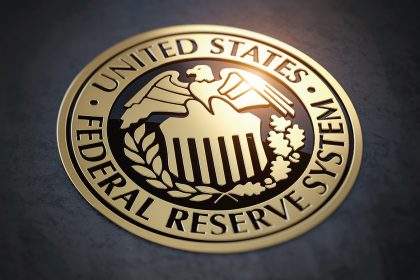Lael Brainard’s remarks suggest the Fed’s more openness to digital currencies. The U.S. Federal Reserve is studying the feasibility of issuing a digital currency and the risks associated with that.
United States Federal Reserve is researching the opportunities that central banks may get issuing their digital currencies. It was revealed by Lael Brainard, a member of the U.S. Federal Reserve’s Board of Governors.
According to her, the digitalization of payments could be beneficial, but at the same time, it has some related risks to the country’s financial stability.
There Are Risks
Speaking at a conference on payments at the Stanford Graduate School of Business Brainard said:
“By transforming payments, digitalization has the potential to deliver greater value and convenience at lower cost. But there are risks. Some of the new players are outside the financial system’s regulatory guardrails, and their new currencies could pose challenges in areas such as illicit finance, privacy, financial stability and monetary policy transmission.”
She added that the Fed is organizing research and probes connected to distributed ledger technologies and their potential use case for digital currencies, including the potential for a CBDC (central bank digital currency).
A recent international study showed that numerous central banks around the world are doing similar work. Let’s not forget, first of all, about China. It has more than once provided the updates of its plans to issue a digital coin. Last week, the National Bank of Cambodia revealed some similar plans.
Also, six central banks including the central banks of the U.K. and Japan, as well as the European Central Bank (ECB), recently formed a working group in order to cooperate and share research relating to CBDCs.
Libra Project ‘Imparted Urgency’ to Talk about Digital Currencies
However, that was before the capacity of Facebook’s digital currency ambitions became publicly known. Fed officials, including Brainard, have then raised concerns about user protections and data and privacy threats that could be taken by some digital currency that could be utilized by the third of the world’s population that have Facebook accounts.
Brainard stated the Facebook Libra project “imparted urgency” to the conversation around digital currencies.
Brainard said that in the United States, one of the main issues that need to be researched is the question of whether a digital currency could make the payments system safer or simpler. And of course, the risks should be carefully studied.
Public Sector Needs to Be Actively Engaged
Among other things are also privacy and fraud protection, and the question is would the coin be considered legal tender after all.
She said:
“In the United States no less than in other major economies, the public sector needs to engage actively with the private sector and the research community to consider whether new guardrails need to be established, whether existing regulatory perimeters need to be redrawn, and whether a CBDC would deliver important benefits on net.”
Meanwhile, in Europe, this aspect is also being actively considered and discussed. European Central Bank Governing Council Member Francois Villeroy recently has stated that central banks should take the initiative from private businesses to issue digital currencies.
next